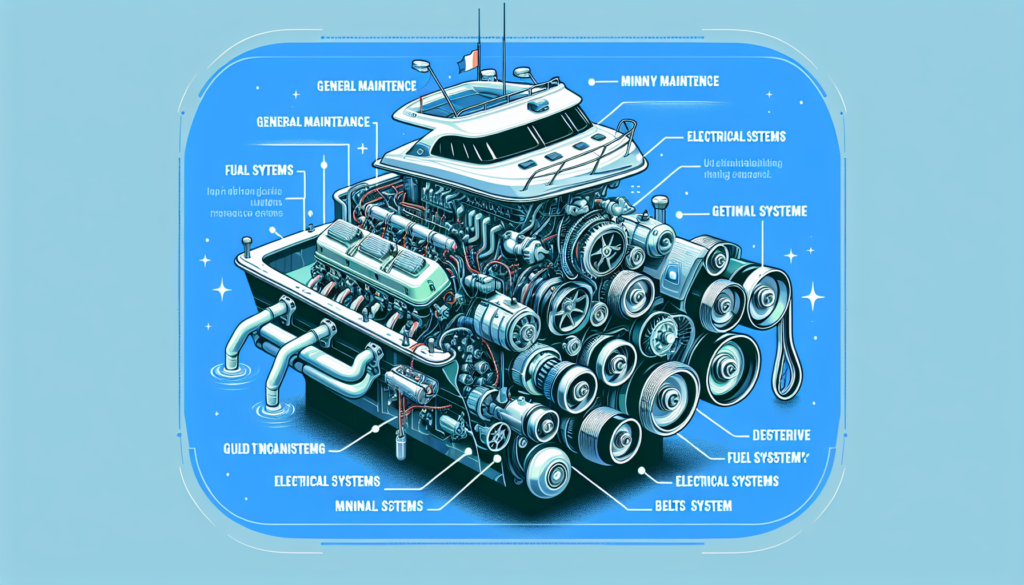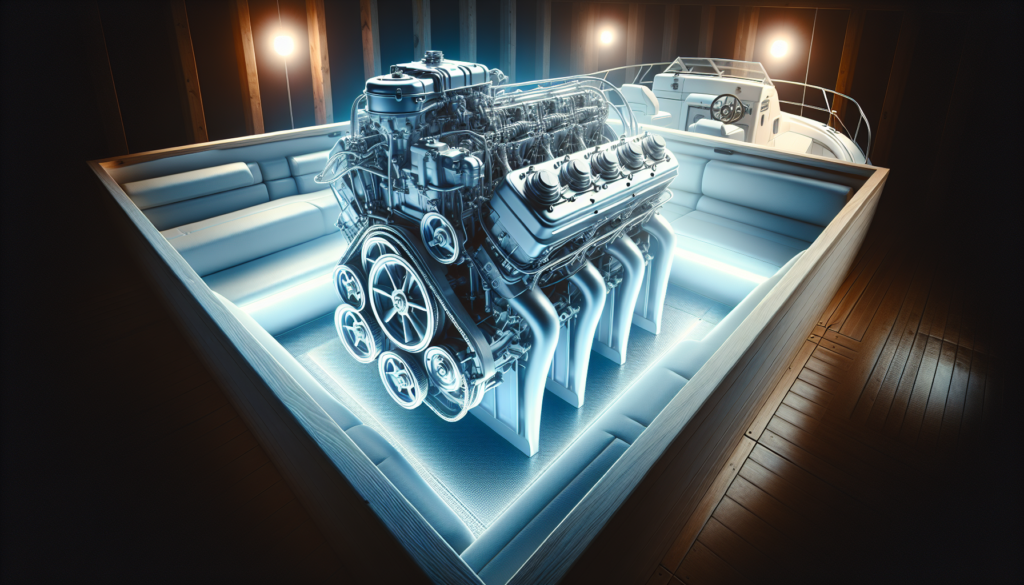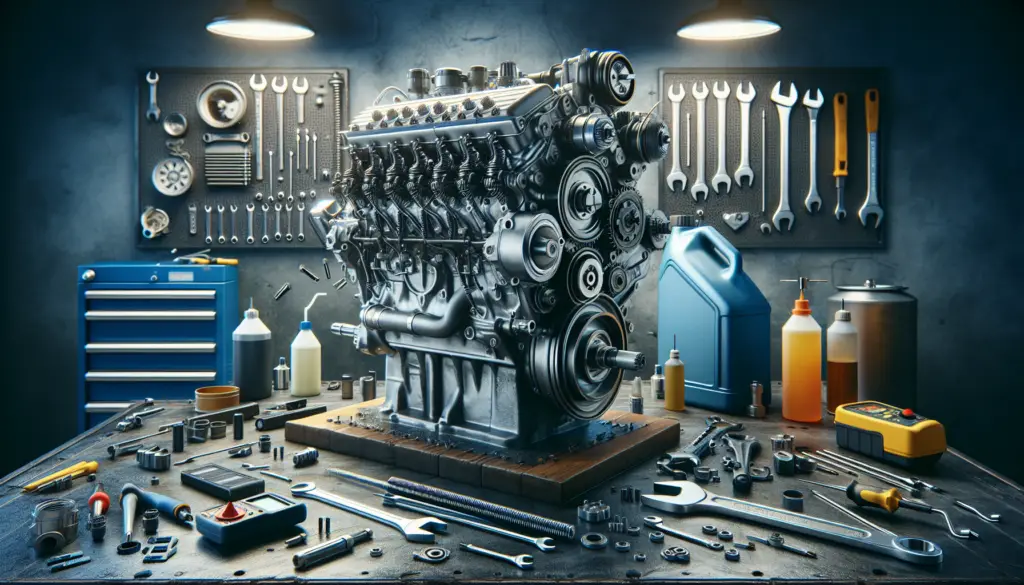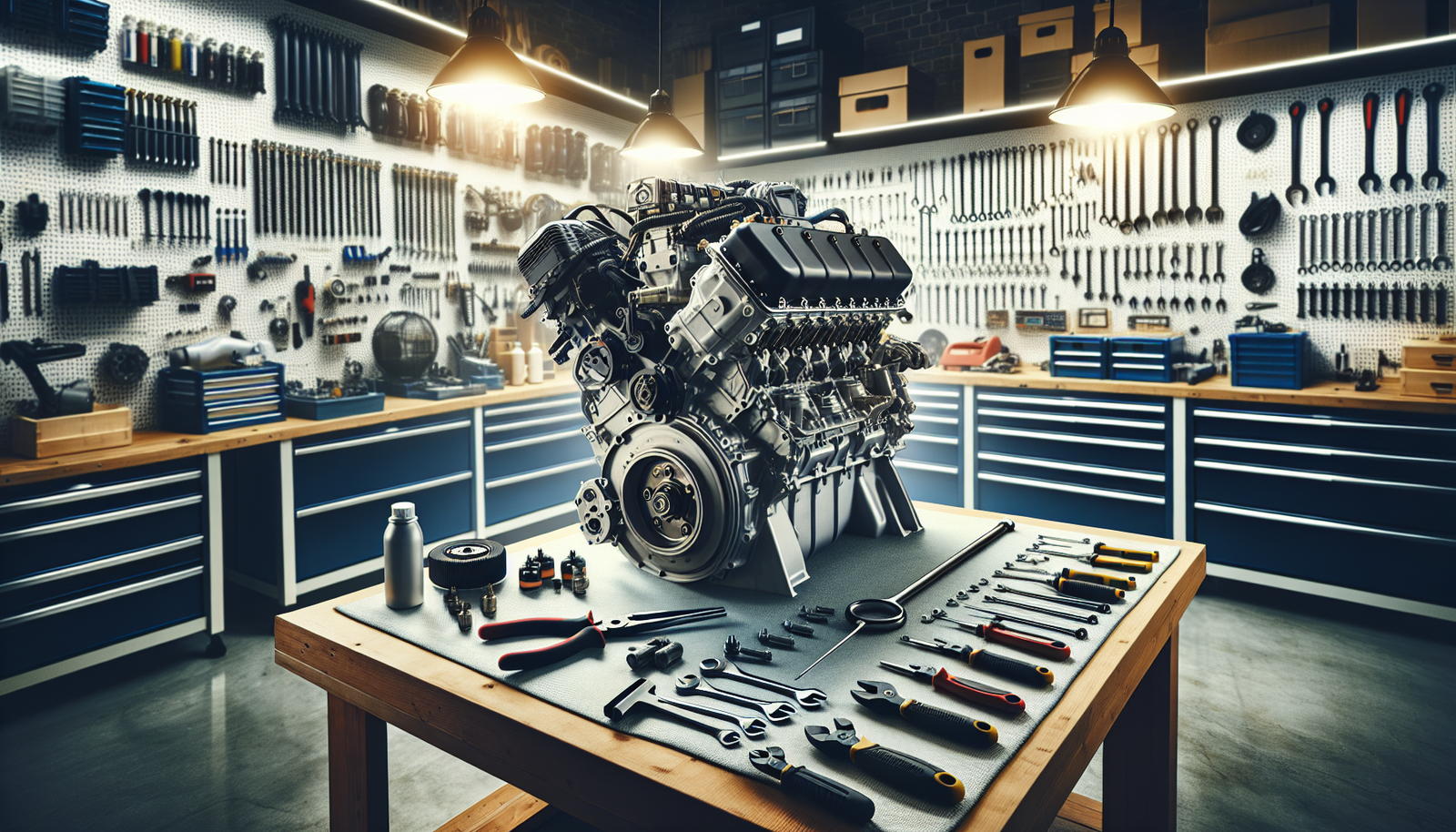As the days start to warm and the water calls your name, it is high time to ensure your boat’s engine is in perfect shape for the boating season. “The Ultimate Checklist for Preparing Your Boat Engine for the Boating Season” does just that – guiding you meticulously through each step with expert advice. From simple maintenance tasks to the more complex mechanical checks, the list is designed to safeguard you from any potential breakdowns or calamities at sea. After all, nothing should disrupt your blissful marine adventure. So, get your boat in top-notch condition with this comprehensive guide.

Understanding Your Boat’s Specific Needs
Boating is a wonderful hobby. Whether you use your vessel for fishing or prefer to spend lazy afternoons sailing around, there’s nothing like spending some time on the open water. But do you know your boat as well as you should? Understanding your boat’s requirements is crucial to ensure optimal performance and safety.
Know Your Boat’s Engine
The engine is the heart of your boat, and you need to know it in and out. Being familiar with the engine’s model, make, horsepower, and other essential specifics means you’re likely to spot potential issues early and ensure your boat is always running smoothly. Remember, each engine is unique and will have its unique traits and needs.
Review the Owner’s Manual
Never underestimate the importance of your boat’s owner’s manual. Take the time to read it thoroughly, as it will provide essential details about your boat’s specific capabilities, maintenance requirements, and safety instructions to ensure proper function. Consider it your boat’s personal guide.
Understanding your Boat’s Specifications
Your vessel’s specifications, including weight, length, draft, and carrying capacity, help you maintain balance and maneuverability. Being familiar with these specs also prevents you from overloading or underutilizing your boat.
Physical Inspection of the Boat Engine
Keeping a keen eye on your boat’s engine is important to prevent unexpected breakdowns. Make it a habit to inspect it regularly, especially before and after each trip.
Checking for Visible Damages
Carefully inspect your engine for any visible damage. Check for cracks, discoloration, or any deformities that could indicate a potential problem. Early detection may save you costly repairs in the long run.
Investigating Signs of Wear and Tear
Even without visible damage, the engine often shows signs of wear and tear, such as worn out components, loose parts, and deteriorated seals. Ensure you investigate these signs and address them as quickly as possible.
Inspecting Engine Mounts and Belts
Engine mounts and belts are critical parts of your boat. Check for loose fittings, signs of deterioration, and ensure they have the correct tension for optimal motor performance.
Looking for Leaks and Corrosion
Leaks and corrosion can negatively impact the efficiency of your boat’s engine. Regularly check for leaks in fuel lines, plumbing, and seals and look out for any signs of rust or corrosion to address them timely.
Testing of the Electrical Systems
Electric systems are vital for your boat’s functioning. From lighting up the cabin to starting the engine, it’s essential to regularly run checks on these systems.
Inspecting Battery and Wires
Inspect the electrical wires for signs of fraying, corrosion or loose connections. Likewise, check the battery’s terminals, look for leaks, and ensure it’s adequately charged.
Testing Lights and Signal Systems
Don’t underestimate the need for effective lighting and signaling systems, especially during night travel or in poor visibility conditions. Test all the lights, including deck and navigation lights, to ensure they’re functioning properly.
Checking the Fuse Box and Circuit Breakers
Consider your fuse box and circuit breakers as the gatekeepers of your boat’s electric system. Check them regularly to detect any potential issues early. Also, make sure fuses and breakers are correctly rated for the equipment they protect.
Ensuring Radio and GPS systems are functional
Timely communication and navigation can be critical during sailing. Ensure your radio is transmitting and receiving correctly, and your GPS system maps are updated.
Maintenance of Fuel Systems
Your fuel system requires regular upkeep. A clean and functioning fuel system contributes directly to the health of your boat’s engine.
Checking Fuel Lines and Connections
Fuel lines and connections are often overlooked. Regularly inspect these for leaks or signs of wear and tear to prevent any unexpected fuel system problems.
Inspecting the Fuel Tank
Check your fuel tank for any contamination, rust, or cracks. Remember, a clean, uncontaminated fuel tank is essential for engine health.
Replacing the Fuel Filter
Fuel filters ensure your boat’s engine gets clean, debris-free fuel. Make a habit of replacing these filters as per the manufacturer’s recommendations.
Adding a Fuel Stabilizer
Fuel stabilizers are vital, especially when your boat will be out of use for an extended period. It prevents the fuel from degrading and keeps the engine’s fuel system clean.

Assessment of Cooling and Exhaust Systems
Revitalize your cooling and exhaust systems periodically. Keep a close eye on these systems to prevent potential overheating or contamination.
Inspecting the Water Pump
The water pump plays a crucial role in cooling your engine. Ensure it’s functioning properly and replace any worn-out impellers or seals.
Testing the Thermostat
The thermostat regulates the engine’s temperature. Test it for correct operation to avoid overheating issues.
Checking the Heat Exchanger
A functioning heat exchanger removes heat from the engine. Ensure it’s clean and free from any blockage for optimal performance.
Examining the Exhaust Manifold
The exhaust manifold redirects exhaust gases away from the engine. Inspect it for signs of corrosion, leaks or cracks.
Servicing the Outboard Motor
If you have an outboard motor, it needs regular servicing. Pay attention to these critical components to ensure the longevity of your motor.
Checking the Propeller and Gearcase
The propeller ensures your boat moves efficiently through the water. Inspect it for any dents, cracks or damage. Check the gearcase for any leaks or signs of damage.
Replacing Spark Plugs
Spark plugs play a vital part in the engine’s ignition system. Regular inspection and replacements when necessary can save you from unexpected engine failures.
Inspecting and Greasing Seals and Fittings
Seals and fittings prevent unwanted leaks. Regularly inspect and grease these components to ensure they are doing their job correctly.
Changing the Gear Oil
Gear oil lubricates your boat’s transmission. Regular changes ensure smooth and efficient gear operation.

Maintaining the Inboard Engine
Inboard engines are known for their robust performance and longevity. However, they need regular maintenance to continue operating correctly.
Checking Oil Levels
Make it a habit to check the oil levels regularly. Periodic oil changes keep the engine running smoothly.
Inspecting the Transmission Fluid
Transmission fluid plays a vital role in an inboard engine’s operation. Regularly inspect for coloration or debris and replace when necessary.
Verifying the Condition of the Starter Motor
The starter motor gets the engine running. Keep an eye on it, and replace it if it shows signs of damage or wear.
Servicing the Carburetor
A well-maintained carburetor ensures your boat’s engine gets the correct fuel-air mixture for efficient combustion. Regular tune-ups can prevent performance hitches.
Safety Checks for the Boat
Nothing matters more than safety. Regularly performing safety checks ensures your boating adventures remain accident-free.
Inspecting the Fire Extinguishers
Ensure your boat’s fire extinguishers are in good working order. Regularly inspect these lifesaving devices, replace if necessary, and ensure everyone on board knows how to use them.
Ensuring Life Jackets are in Good Condition
Life jackets are lifesavers in emergencies. Regularly inspect these for any signs of wear or tear and ensure there are enough for everyone onboard.
Testing the Bilge Pump
The bilge pump is a vital piece of safety equipment. Make sure it’s working correctly to remove unwanted water from your boat’s hull.
Checking the Condition of Mooring Lines
The quality of your boat’s mooring lines impacts your boat’s stability at the dock. Regularly check these for damage and replace if necessary.

Final Run-through Before Launch
A final check before launch ensures a smooth and hitch-free ride. Pay attention to these areas.
Running the Engine in a Controlled Environment
Turn on the engine and let it run for a while before you launch. Check for any irregularities or unwanted noises.
Checking for Unusual Noices or Vibrations
Unwanted noise or vibrations often indicate possible problems. Be aware and address these before they turn critical.
Final Check on Electrical and Fuel Systems
Check all your electrical and fuel systems one more time before setting off. This gives you peace of mind knowing everything is in order.
Inspecting the Boat’s General Seaworthiness
After conducting all other checks, ensure your boat is seaworthy. This includes checking the hull integrity, ensuring there are no leaks, and verifying all equipment on board is functional.
Post-Launch Checks
The inspection doesn’t stop once you’ve launched. Regular post-launch checks help you monitor your boat’s performance and recognize any issues swiftly.
Monitoring the Engine Performance
Keep an eye on your engine performance while sailing. Regular monitoring helps you spot any troubling signs early and address them immediately.
Observing Fuel Consumption
Noticing unusually high fuel consumption could mean potential engine problems. Ensure you are tracking your boat’s fuel usage patterns regularly.
Keeping Tabs on Unusual Engine Noises
Heard a weird noise from your engine? Don’t ignore it. Unusual engine noises could mean an impending breakdown.
Regular maintenance Throughout the Season
Maintenance doesn’t end after one round of checks. Regular well-planned maintenance throughout the season results in a well-performing boat that serves you well.
In summary, taking care of your boat means more than just the fun times you spend on the water – it’s also about regular checks, maintenance and addressing potential problems promptly. So get to know your boat better, understand its specific needs and keep it in top shape. Then all you’ll have left to do is enjoy your time out on the water!


[…] Regular maintenance ensures your boat’s engine stays in top form and you enjoy hassle-free sailing. […]